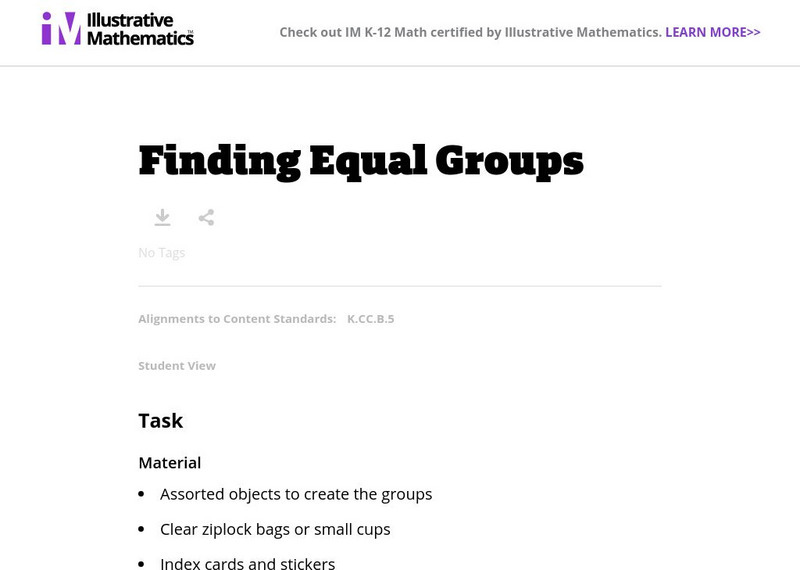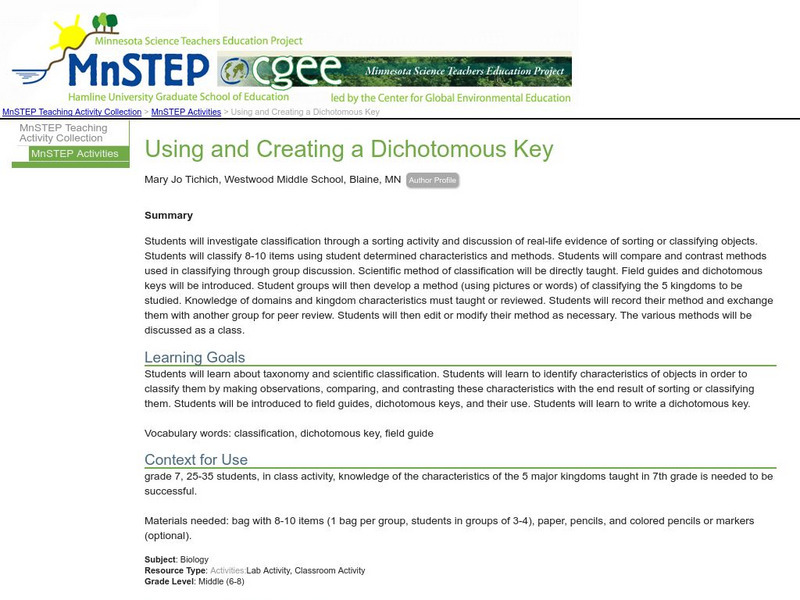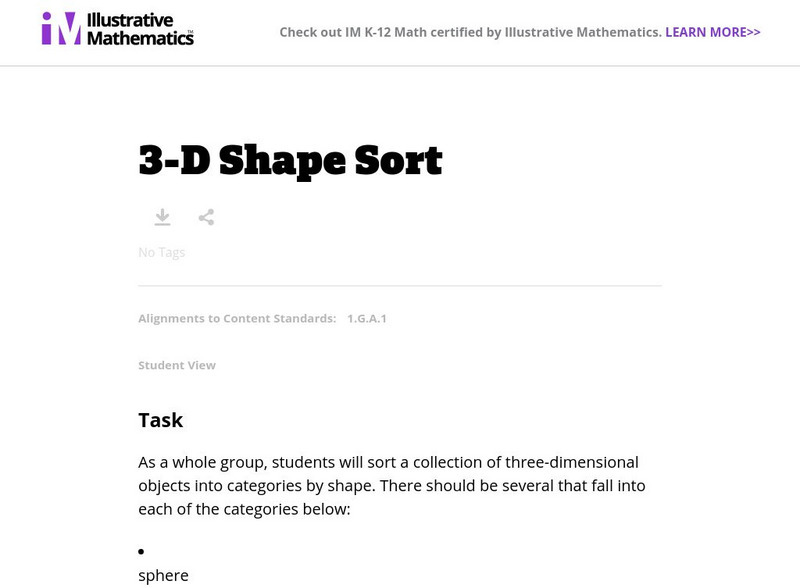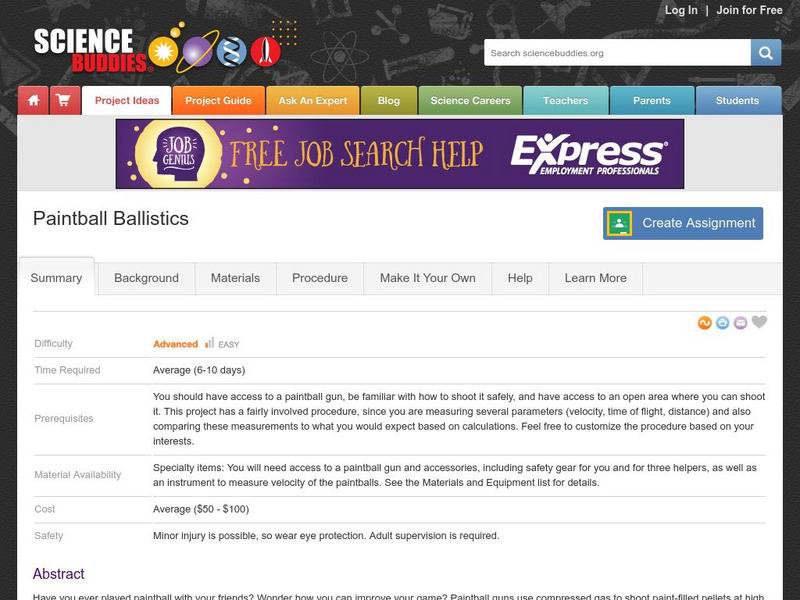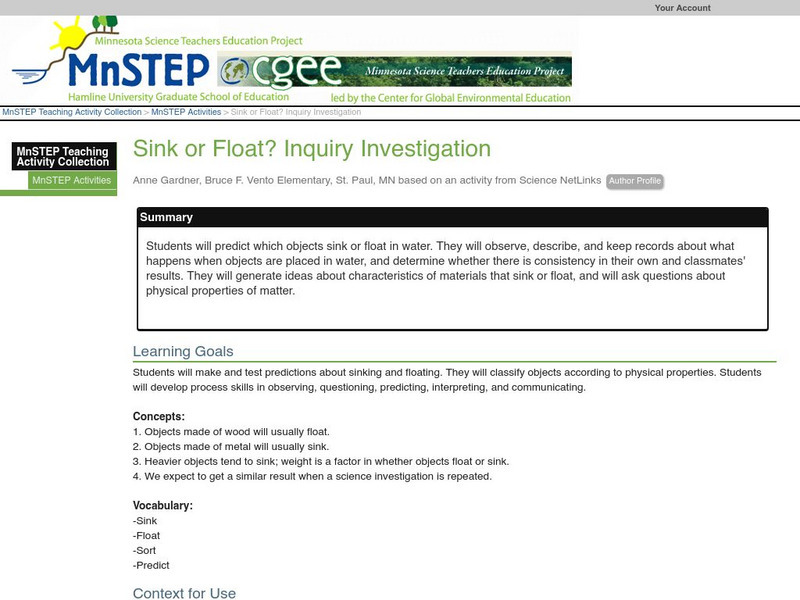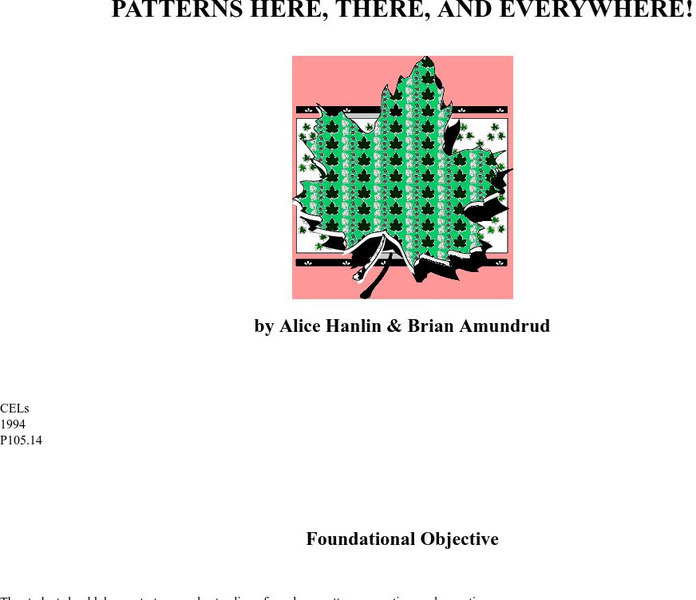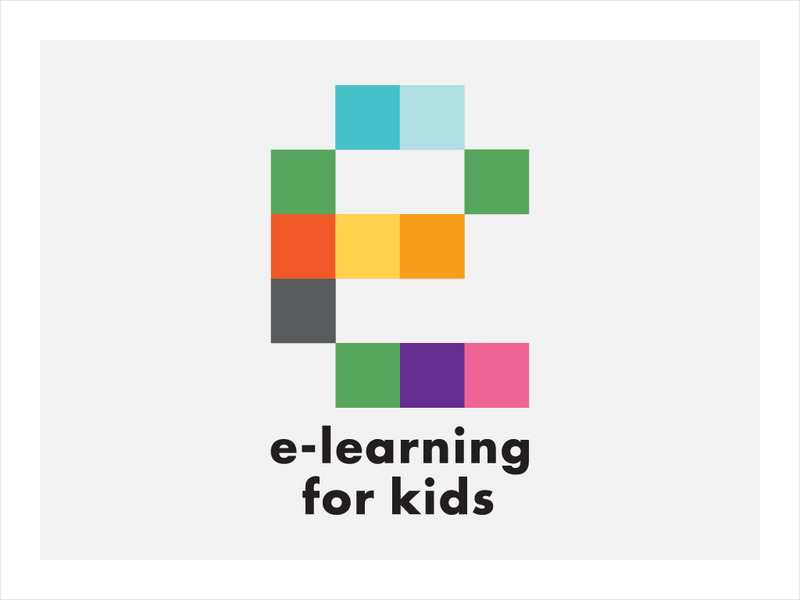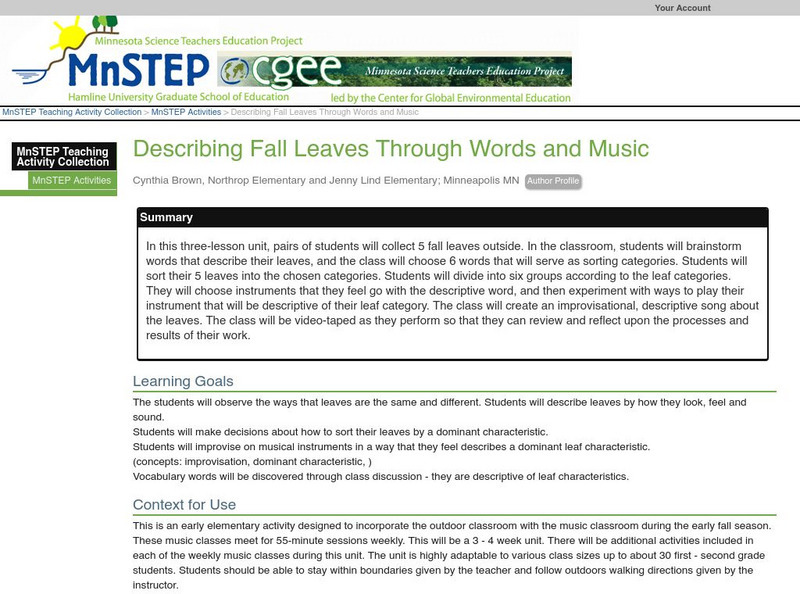Hi, what do you want to do?
Illustrative Mathematics
Illustrative Mathematics: Finding Equal Groups
This activity will test how quickly students can count objects. The teacher will assemble a variety of groups of objects in a few different forms (examples included). Students will race against the clock to sort the groups of objects...
Better Lesson
Better Lesson: Fruit Loop Fun
Using Fruit Loops, students sort by color, count, and enjoy a yummy snack!
Science Education Resource Center at Carleton College
Serc: Using and Creating a Dichotomous Key
Students will investigate classification through a sorting activity and discus real-life evidence of classifying objects.
Illustrative Mathematics
Illustrative Mathematics: 1.g 3 D Shape Sort
As a whole group, students will sort a collection of three-dimensional objects into categories by shape. There should be several that fall into each of the categories below: Aligns with 1.G.A.1.
Better Lesson
Better Lesson: Domestic vs. Wild
Sorting items help students develop language skills as they describe attributes and qualities to determine which category is the best fit for an item. The teacher will introduce the definitions of wild and domestic by reading the book...
Science Buddies
Science Buddies: Project Ideas: Paintball Ballistics
In this science fair project, use a paintball gun to compare the calculated vs. the actual range of a projectile. The Science Buddies project ideas are set up consistently beginning with an abstract, objective, and introduction, followed...
Science Education Resource Center at Carleton College
Serc: Leaf Investigation and Classification
Students will learn about classification of leaves by collecting a variety of leaves from home and working in small groups in the classroom to sort them into groups. Students will present their criteria for grouping the leaves to the class.
Better Lesson
Better Lesson: Finding Equal Groups
Students will be able to compare groups of objects to decide if they are equal with this lesson. Included are pictures and videos of the lesson in action, worksheets, and a SMART Board resource.
Science Education Resource Center at Carleton College
Serc: Mn Step: Sink or Float? Inquiry Investigation
For this activity, students make predictions about whether different objects float or sink, then test them. They are asked to record their observations and results for each, and compare their results to others'.
University of Regina (Canada)
Univeristy of Regina: Math Central: Patterns Here, There, and Everywhere
This lesson plan on early patterning is well written, well planned, and extensive. The math content is substantial for this age. There are lots of connections to other content areas. Materials needed are readily available or provided for...
National Council of Teachers of Mathematics
The Math Forum: Making Patterns
Explore the literature connections, online activity, pencil and paper activity, and the manipulative investigation of patterns and geometric shapes on this page!
ClassFlow
Class Flow: Making Groups
[Free Registration/Login Required] In this flipchart, K-3 students develop their algebraic sense by using a visual scaffold to sort different types of objects.
Utah Education Network
Uen: 1st Grade Act. 08: Then and Now
This lesson engages young scholars in understanding the concepts of "past" and "present" events. Students will sort objects and discuss to reinforce segmentation and blending skills.
Discovery Education
Discovery Education: Recycling: Old Made New [Pdf]
Students will observe the physical properties of items through an activity where they sort objects for recycling. This lesson plan also includes a recycle papermaking process.
E-learning for Kids
E Learning for Kids: Math: Tea Store: Subtraction With Money
These interactive games will explore hexagons, counting, making change, and sorting objects.
Government of Alberta
Learn Alberta: Math Interactives: Exploring Shape Classification
Investigate the properties of triangles, quadrilaterals, and regular polygons using this interactive Learn Alberta math resource. Students are able to practice classifying shapes based on their different properties. Be sure to follow the...
ABCya
Ab Cya: States of Matter
States of Matter is an educational activity for kids to learn about the different properties of matter. The lesson will introduce solids, liquids, and gases. Students will then be assessed through a sorting activity where they will...
E-learning for Kids
E Learning for Kids: Science: Caribbean Sea: Mexico: What Is Classifying?
Christina wants to classify all kinds of different things. Help her sort things into main groups.
Other
Sorico: Describing and Comparing Measurable Attributes
The following unit can be used to teach measurable attributes. Students will describe and compare two objects with a measurable concept in common using direct comparison. Included are necessary vocabulary, a scavenger hunt, and links to...
Science Education Resource Center at Carleton College
Serc: Describing Fall Leaves Through Words and Music
Students collect, describe, and sort leaves found outside. As a cross-curricular component, they will improvise on musical instruments in a way that they feel describes a dominant leaf characteristic.
PBS
Pbs Teachers: Matching Game
Observe different shapes and colors of leaves, and match the leaves in this online interactive game. Discern the differences between members of the same family of objects.
PBS
Pbs Learning Media: Fresh Pick Challenge: Logical Lunch
By using their deductive reasoning skills, children can help Henry and Avril pack a perfect picnic lunch. This activity will provide them with ways to use clues to solve a problem, group objects based on several attributes, and...
ABCya
Ab Cya: Same and Different
The Same and Different Donut Game is a pre-school activity to practice identifying objects that are the alike and not alike. Kids compare donuts based on shape, color and combinations of shape and color. After all rounds have been...
E-learning for Kids
E Learning for Kids: Math: Pizza Restaurant: Data & Length
Students practice ordering objects by height, length and weight on this interactive website by helping an owner of an Italian restaurant.





